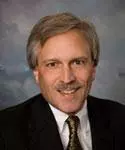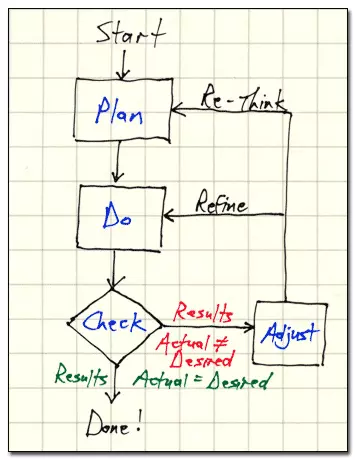Have you ever wanted something highly desirable, yet which runs counter to the way things work? I sure have, and I bet you have, too.


What is an Irreconcilable?
I call a desire such as that an "irreconcilable" – a desire to combine two thoughts which are inherently contradictory. You attempt to "have both your cake and eat it, too." Here are some examples of irreconcilables:
- Expecting a promotion or significant raise, without taking on new tasks.
- Expecting high investment return, without accepting additional risk.
- Expecting increased sales, without doing things differently
- Expecting growth in congregation membership, without having to change.
The common thread in all these – an extrinsic (external) reward is desired, without doing anything different.

Some people would call irreconcilables "day dreams" – I prefer to think of them as "thinking errors." Why? Because they run counter to common "life lessons," such as:
- Promotions and significant raises are earned, not gifted.
- Investment returns are directly related to the investment risk involved.
- Sales are a function of marketing, networking, and selling activities – more sales requires changing these.
- Membership growth is a function of a healthy environment, engagement with the community, and personal invitations.
In all these instances, I think of the humorous definition of "insanity" – "doing the same things over and over, and hoping for different results."
What also comes to my mind is this profound quote:
"All organizations [or individuals] are perfectly designed to get the results they get."
– Dave Hanna, management consultant
The implication? If you don't like the results you are getting, you're going to have the change the design of your activities. Sorry to burst that day dream.
How Top Performers Do It
Top performers in any area treat life differently than most people – top performers treat their lives as a series of experiments. Plan an action, do it, check the actual results against desired ones, and adjust your actions as needed.
Here's how this works:

(Read more on the Plan-Do-Check-Adjust cycle.)
One person, in particular, exemplifies life as a series of experiments: Thomas Edison. He and his staff, in their quest to develop the first practical incandescent light bulb, tested more than 6,000 plant materials as light bulb elements, ultimately selecting carbonized bamboo for its longevity (over 1,200 hours). Keep in mind, Thomas Edison did not invent the light bulb – he was the first to make it practical, and thus achieved commercial success. His did not question whether commercialization could be achieved - he knew it could, yet did not know how many attempts it would take to reach his goal.
The Edison story helps illustrate two concepts, and their key differences:
- Irreconcilable – "I want to make the first commercially viable light bulb, yet I want to do this within my first 100 attempts."
- Uncontrollable – "I want to make the first commercially viable light bulb, yet I do not know how long this will take or whether someone else will beat me to market."
Irreconcilable thoughts come from looking for short cuts where none exist. Want to earn an Olympic gold medal in gymnastics? Impossible, without a lot of practice. Even with a lot of practice, Olympic gold is not guaranteed – there are many uncontrollables, such as the gymnast's health on a particular day, or another gymnast who is more gifted or has a better coach, or a judge's preferences and scoring practices.
Here are some quotes reflecting these ideas
"Don't think of it as failure. Think of it as time-released success."
– Robert Orben, comedian"Success is peace of mind, which is a direct result of self-satisfaction in knowing you did your best to become the best that you are capable of becoming."
– John Wooden, legendary basketball coach"Once the opportunity arrives, it's too late to prepare."
– John Wooden, legendary basketball coach
Top performers always treat their actions as a series of experiments, always give their best, and always know they could still come up short.
Achieving success without preparation or effort? Irreconcilable thoughts. Failing to achieve success, even with extraordinary preparation and effort? Uncontrollable situations.
Situations and other people cannot be controlled, they can only be influenced. Thoughts, however, can be controlled and directed to adopt a different mindset – the same Plan-Do-Check-Adjust mindset used by all top performers.

Todd L. Herman





